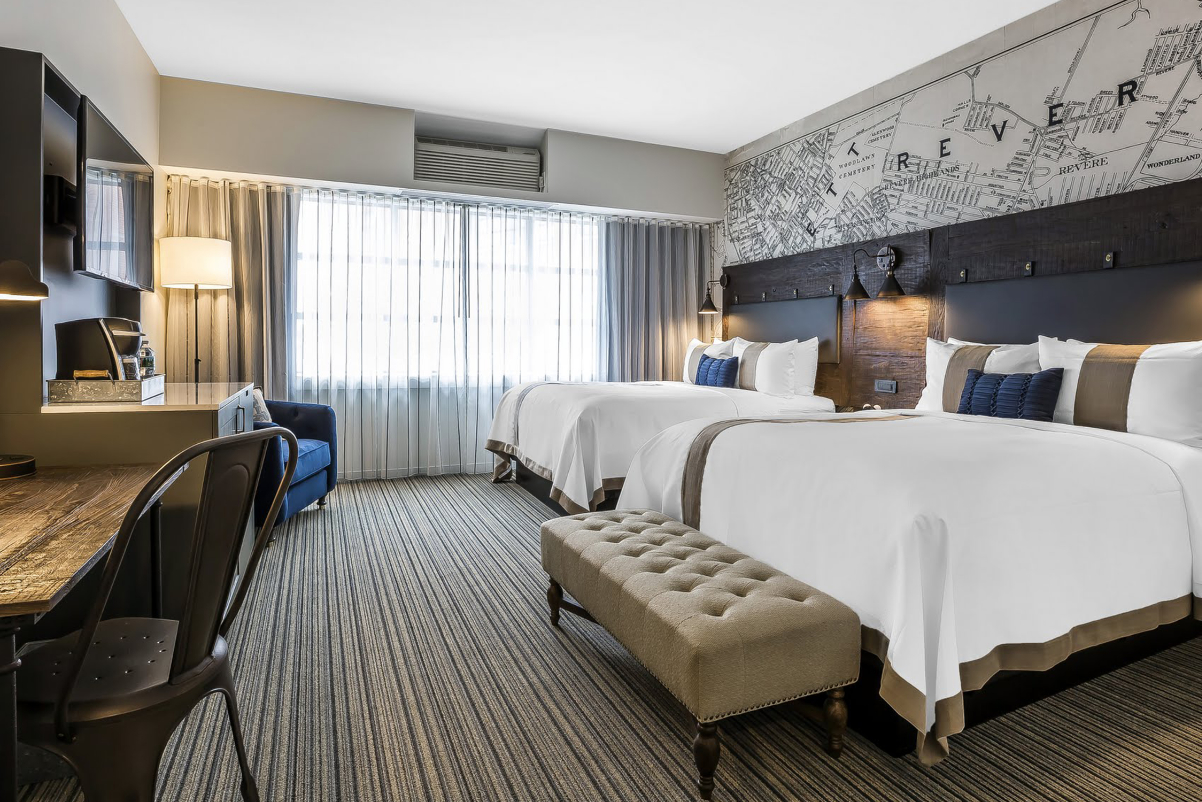Skift Take
Choice Hotels doesn't consider private equity entrants as competition, but as potential collaborators.
This was the year the short-term rentals industry saw it all — the good, the bad and the ugly.
It has been a year of tough regulations, softening demand and fierce competition. Notably, 2023 saw every major hotel company announce an extended stay brand — Marriott, Hyatt, Hilton, Wyndham, Best Western to name a few.
But Choice Hotels believes it has a clear competitive advantage over its peers. It has four extended stay brands, a plan to transform traditional hotel rooms into an extended stay unit by shipping and installing a kitchen, and a franchise model that allows the company to branch out of the Choice platform.
Through franchising and acquisitions, the company has established itself as a prominent player. Last year, Choice produced record revenue of $1.4 billion and a record net income of $332.2 million.
Skift spoke to Matt McElhare, senior director of extended stay and Ron Burgett, senior vice president of franchise development in its extended stay business.
Here are the top takeaways below. Edited for clarity:
Do private equity firms investing in short-term rentals pose a threat to extended stay brands?
Matt McElhare: In a lot of ways that’s validation for the opportunity that exists in longer stay accommodations. And that’s what’s been driving our investment as a company over the last six years — to build a leadership presence in the extended stay kind of branded solution for long staying travelers.
Right now in the hospitality space, demand for longer stays is roughly 20% of overall lodging demand, but supply is roughly about 10%. Majority of these travelers are looking for consistency, convenience and predictability.
Those three factors create a competitive advantage for a branded solution relative to a short term rental where it is much more difficult to create that consistency across the board.
Ron Burgett: Most of our brands are playing in the midscale and economy segment. Private equity firms like TPG — that’s a little more for the affluent traveler. Can you imagine the marketing costs to do that, right? But they don’t have the power of Choice Hotels.
And it’s an expensive model. It will work, because demand is twice the supply. We’ll let them have that little piece of the demand at the top for now. But rest assured we’re not assuming that they’re not a competitor. We’re watching and we want to see what they’re doing. But I think we can learn faster with our background.
What is Choice Hotels’ advantage in this competitive market of extended stays?
Matt McElhare:The reason all these companies are introducing extended stays is because of how different they are from traditional hotels. Over the last six years, we’ve been investing in capabilities like support from a sales perspective marketing, operations, training and development. Those key areas allow our developers to find the best sites within the best markets for extended stay, and then operate them effectively.
How we win in this space is by being wholly focused on it, and helping those coming from outside of hospitality or whether their primary investments are in traditional hotels. We help them be successful and actually achieve returns that are different from what you can achieve with a traditional hotel.
How does the franchise model work?
Ron Burgett: We’ve flown under the radar for so many years, and done very well consistently. But at the same time, we’re trying to attract new investors to come into our midscale brand. But what they want is that cookie-cutter experience, they want Choice to take the monkey off their back.
They have a pile of cash that their investors want to put somewhere. I mean, we obviously are partial to ourselves, but we have put the entire turnkey model together. From site selection in the very beginning, which is critical, all the way to the operating model to and staying at the hotel with our 60 people strong team focused just on extended stays at Choice Hotels.
Explain the kitchen-in-a-box concept
Ron Burgett: If we’re talking to developers, and then want to get in this business — What’s the quickest way to do it?
We could go into the transient hotel room and give them what Matt and his team developed, which is called kitchen-in-a-box. So we literally ship a kitchen for however many rooms they have to that property and give them a very clear operating model on how to turn that transient room into extended stay. That’s the quickest way to get into the business.
Matt McElhare: And we have made this process as easy as possible. Through working with architects, general contractors and folks that specialize in renovation, we’ve taken it 85 to 90% of the way. And then we have a system in place that helps solve for the remaining 10% that just reflects the nuance of every hotel, right there’s always going to be some uniqueness based on the existing layout.
We’ve made it easy in the sense that folks see the clear return on investment to bring it into extended stay and they feel that Choice has given them a clear plan on how they do it.
And the proof is in the results — we’ve got 30 of these ongoing right now with believe 18 already completed so there’s a lot of adoption of the concept because there are a lot of folks that have traditional hotels that haven’t performed well over the last few years that are sitting in favorable extended stay markets.
Dwell Newsletter
Get breaking news, analysis and data from the week’s most important stories about short-term rentals, vacation rentals, housing, and real estate.
Have a confidential tip for Skift? Get in touch
Tags: choice hotels, extended stay, future of lodging, private equity, short-term rentals, vacation rentals
Photo credit: Envision Hotel Boston-Everett, which belongs to Choice Hotels' Ascend Hotel Collection. Source: Choice Hotels.
